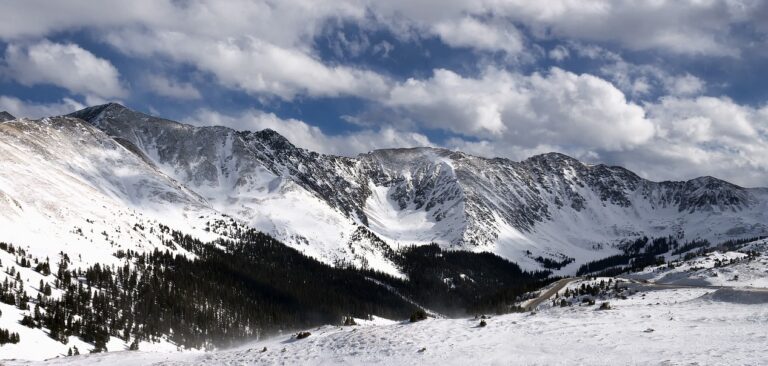Without climate change, the drought in the Colorado River Basin most likely would not have reduced reservoir levels in 2021 to the point requiring supply cuts under the first-ever federally declared water shortage, according to a new study.
From 2000 to 2021, the Colorado River Basin lost more than 40 trillion liters (10 trillion gallons) of water. The regional drought that began in about 2000 is the driest period in 1,200 years and has reduced river flow and shrunk reservoirs, increasing concerns about water scarcity.
Benjamin Bass, a hydrologic modeler at the University of California, Los Angeles and lead author of the study, said, “While we knew warming was having an impact on the Colorado Basin’s water availability, we were surprised to find how sensitive the basin is to warming compared to other major basins across the western US, and how high this sensitivity is in the relatively small area of the basin’s crucial snowpack regions. The fact that warming removed as much water from the basin as the size of Lake Mead itself during the recent megadrought is a wake-up call to the climate change impacts we are living today.”
Previous analyses of changing water resources in this region have focused on the effects of climate processes alone, without considering the impact of plants’ complex responses to increased atmospheric carbon dioxide. The new study improves on previous hydrologic modeling of this region by including changes in runoff as a result of carbon dioxide-driven shifts in vegetation. It is the first to calculate how much runoff changes per degree of warming based on historical warming in the Colorado River Basin’s snowpack regions compared to non-snowpack regions, quantifying how anthropogenic climate change has dried out traditional snowpack regions and rapidly reduced the runoff that feeds the Colorado River.
To see how the basin’s hydrology changed between 1880 and 2021, the researchers used a land surface model capable of analyzing water, changes in vegetation and vegetation’s response to increasing atmospheric carbon dioxide. They used standard data sets to represent atmospheric conditions, streamflow gauges and other records to capture the regional hydrology, and ground and satellite data to document actual changes in vegetation.
By including all these types of data, “We had all the major players in terms of runoff’s sensitivity to climate change,” said Bass.
The model analyses showed that from 1880 to 2021, the temperature in the Colorado River Basin warmed about 1.5°C (2.7°F) as a result of anthropogenic climate change. This warming has led to a 10.3% reduction in runoff in under present-day conditions. Without including the effects of plants, present-day water loss would be closer to 13%, pointing to the importance of including vegetation processes in water modeling, the authors said.
That 10.3% decrease in runoff culminated during the historic drought of 2000 to 2021, when the cumulative volume of lost runoff water was approximately equal to the full capacity of Lake Mead, the largest reservoir on the Colorado River.
The researchers also discovered that the parts of the basin that are usually snow-covered in winter are now losing water about twice as fast as typically snowless regions. The transition is of immediate concern for water managers because snowpack makes an outsize contribution to the basin’s water supply: Only about one-third of the basin is covered with snow each year, but those snowy regions are the source of about two-thirds of the basin’s total runoff.
The rapid water loss in snowpack regions is a sign that the Rocky Mountain West is transitioning to a more arid climate rather than simply undergoing periodic droughts, according to Bass.
Bass pointed out that the 1922 Colorado River Compact, which governs the use of river water by the seven western US states the Colorado flows through, was written with the assumption that the regional climate was stable.
When the representatives of these states signed the contract, “They expected 15 million acre-feet of water (about 18.5 trillion liters or 4.6 million gallons) would be provided from the basin, on average, each year,” Bass said. “If they were outlining the compact now, they would need to adjust that value due to the impact of warming. Going into the future, we may get some natural variability, wet or dry swings, but this study highlights that there’s been a decreasing trend in runoff. In the long run, that’s likely to continue if greenhouse gas emissions are not reduced.”
To view the complete study published in the AGU journal Water Resources Research, click here.



